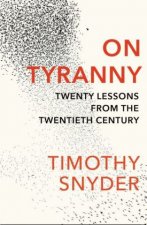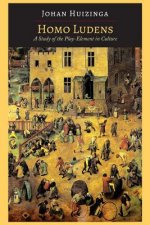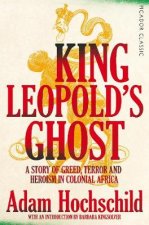
Kód: 04639277
Politics of Retribution in Europe
Autor István Deák, Jan Gross, Tony Judt
The presentation of Europe's immediate historical past has quite dramatically changed. Conventional depictions of occupation and collaboration in World War II, of wartime resistance and post-war renewal, provided the familiar back ... celý popis
- Jazyk:
 Angličtina
Angličtina - Väzba: Brožovaná
- Počet strán: 352
Nakladateľ: Princeton University Press, 2000
- Viac informácií o knihe

67.27 €

Skladom u dodávateľa v malom množstve
Odosielame za 10 - 14 dní
Potrebujete viac kusov?Ak máte záujem o viac kusov, preverte, prosím, najprv dostupnosť titulu na našej zákazníckej podpore.
Pridať medzi želanie
Mohlo by sa vám tiež páčiť
-

Europe on Trial
63.52 € -

Reformation
20.69 € -23 % -

Competition in Socialist Society
71.13 € -

Polish Society Under German Occupation
88.99 € -

The Unknown Revolution, 1917-21
64.33 € -

Polish Underground State 1939 - 1945
44.54 € -

Great Influenza
12.17 € -23 %
Darčekový poukaz: Radosť zaručená
- Darujte poukaz v ľubovoľnej hodnote, a my sa postaráme o zvyšok.
- Poukaz sa vzťahuje na všetky produkty v našej ponuke.
- Elektronický poukaz si vytlačíte z e-mailu a môžete ho ihneď darovať.
- Platnosť poukazu je 12 mesiacov od dátumu vystavenia.
Viac informácií o knihe Politics of Retribution in Europe
Nákupom získate 168 bodov
 Anotácia knihy
Anotácia knihy
The presentation of Europe's immediate historical past has quite dramatically changed. Conventional depictions of occupation and collaboration in World War II, of wartime resistance and post-war renewal, provided the familiar backdrop against which the chronicle of post-war Europe has mostly been told. Within these often ritualistic presentations, it was possible to conceal the fact that not only were the majority of people in Hitler's Europe not resistance fighters but millions actively co-operated with and many millions more rather easily accommodated to Nazi rule. Moreover, after the war, those who judged former collaborators were sometimes themselves former collaborators. Many people became innocent victims of retribution, while others--among them notorious war criminals--escaped punishment. Nonetheless, the process of retribution was not useless but rather a historically unique effort to purify the continent of the many sins Europeans had committed. This book sheds light on the collective amnesia that overtook European governments and peoples regarding their own responsibility for war crimes and crimes against humanity--an amnesia that has only recently begun to dissipate as a result of often painful searching across the continent. In inspiring essays, a group of internationally renowned scholars unravels the moral and political choices facing European governments in the war's aftermath: how to punish the guilty, how to decide who was guilty of what, how to convert often unspeakable and conflicted war experiences and memories into serviceable, even uplifting accounts of national history. In short, these scholars explore how the drama of the immediate past was (and was not) successfully "overcome." Through their comparative and transnational emphasis, they also illuminate the division between eastern and western Europe, locating its origins both in the war and in post-war domestic and international affairs. Here, as in their discussion of collaborators' trials, the authors lay bare the roots of the many unresolved and painful memories clouding present-day Europe. Contributors are Brad Abrams, Martin Conway, Sarah Farmer, Luc Huyse, Lszl Karsai, Mark Mazower, and Peter Romijn, as well as the editors. Taken separately, their essays are significant contributions to the contemporary history of several European countries. Taken together, they represent an original and pathbreaking account of a formative moment in the shaping of Europe at the dawn of a new millennium.
 Parametre knihy
Parametre knihy
Zaradenie knihy Knihy po anglicky Humanities History History: earliest times to present day
67.27 €
- Celý názov: Politics of Retribution in Europe
- Podnázov: World War II and Its Aftermath
- Autor: István Deák, Jan Gross, Tony Judt
- Jazyk:
 Angličtina
Angličtina - Väzba: Brožovaná
- Počet strán: 352
- EAN: 9780691009544
- ISBN: 0691009546
- ID: 04639277
- Nakladateľ: Princeton University Press
- Hmotnosť: 522 g
- Rozmery: 236 × 156 × 21 mm
- Dátum vydania: 16. April 2000
Obľúbené z iného súdka
-

Learn to Read Ancient Sumerian
31.86 € -

Russian Journal
14.30 € -23 % -

King's Two Bodies
28.61 € -7 % -

Heart of Europe
20.69 € -23 % -

Armies of Castile and Aragon 1370-1516
17.75 € -4 % -

One Hell of a Gamble
27.09 € -17 % -

Rise and Fall of Ancient Egypt
18.56 € -23 % -

Guns, Germs, and Steel
17.04 € -

The Origins of Totalitarianism
10.44 € -22 % -

Illustrated Encyclopedia of Uniforms of World War I
21.81 € -23 % -

On Tyranny
9.73 € -24 % -

Homo Ludens
11.97 € -

Tuesdays With Morrie
10.14 € -24 % -

History of the Decline and Fall of the Roman Empire
14.30 € -23 % -

King Leopold's Ghost
13.28 € -16 % -

Meditations
9.02 € -19 % -

Streams of Gold, Rivers of Blood
36.32 € -

Travels of Ibn Battutah
13.89 € -12 % -

Augustus
16.43 € -23 % -

Age Of Capital
16.43 € -23 % -

Egyptian Book of the Dead: The Book of Going Forth by Day : The Complete Papyrus of Ani Featuring Integrated Text and Full-Color Images (History ... M
32.36 € -9 % -

Deng Xiaoping and the Transformation of China
32.77 € -

Age Of Extremes
17.24 € -20 % -

John Skylitzes: A Synopsis of Byzantine History, 811-1057
38.05 € -16 % -

Arms and Armour of Late Medieval Europe
11.05 € -23 % -

Alexander the Great
16.43 € -22 % -

End of Days
8.31 € -19 % -

Shake Hands With The Devil
14.20 € -15 % -

Complete Roman Army
21.81 € -23 % -

Distant Mirror
14.30 € -23 % -

Fall of the Roman Empire
25.97 € -

Fifties
19.37 € -16 % -

After the Ice
18.56 € -23 % -

Histories
5.98 € -19 % -

Savage Continent
16.43 € -23 % -

Oxford IB Diploma Programme: The Cold War: Superpower Tensions and Rivalries Course Companion
52.46 € -

Age Of Empire
16.43 € -23 % -

Pompeii
12.17 € -23 % -

Life in a Cave
7.09 € -4 % -

Oxford Illustrated History of Prehistoric Europe
35 € -20 % -

On the Ocean
39.67 € -7 % -

Flowers of Battle The Complete Martial Works of Fiore dei Liberi Vol 1
140.04 € -

On Ancient Warfare
43.02 € -1 % -

Access to History for the IB Diploma: Causes and effects of 20th-century wars Second Edition
38.96 € -

Safe Area Gorazde
20.69 € -23 % -

Yoga Body
18.76 € -10 % -

Fear and Loathing on the Campaign Trail '72
14.30 € -23 % -

Fall of Carthage
16.43 € -23 % -

Hidden Figures
10.85 € -24 %
Osobný odber Bratislava a 2642 dalších
Copyright ©2008-24 najlacnejsie-knihy.sk Všetky práva vyhradenéSúkromieCookies


 21 miliónov titulov
21 miliónov titulov Vrátenie do mesiaca
Vrátenie do mesiaca 02/210 210 99 (8-15.30h)
02/210 210 99 (8-15.30h)